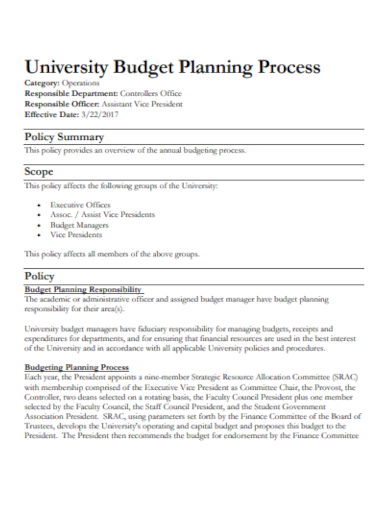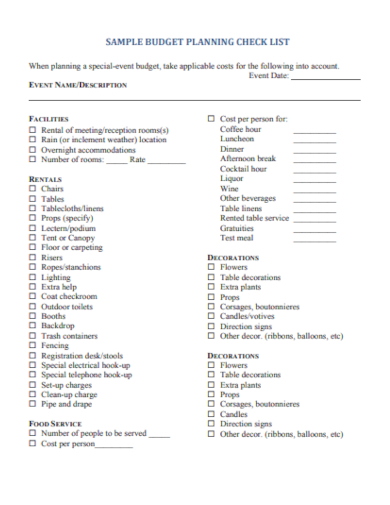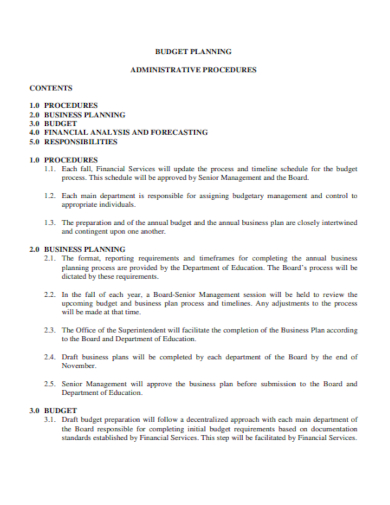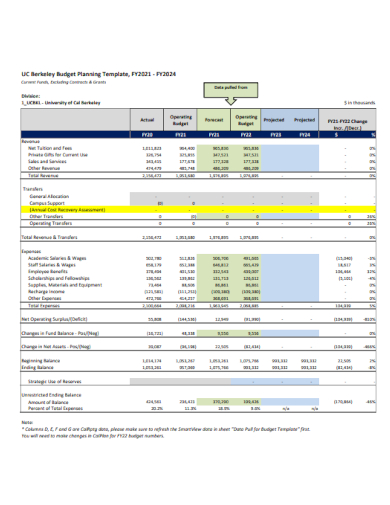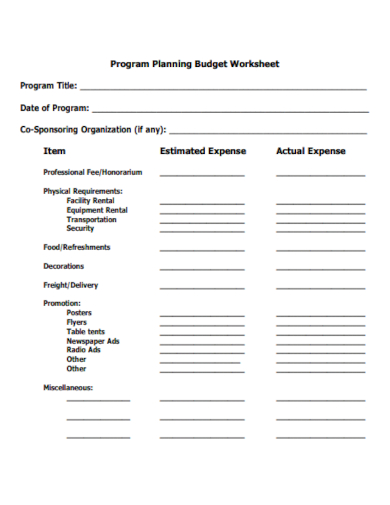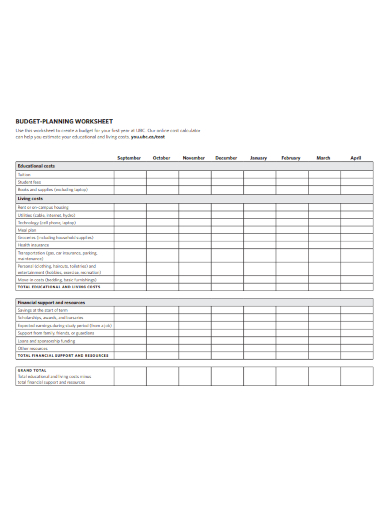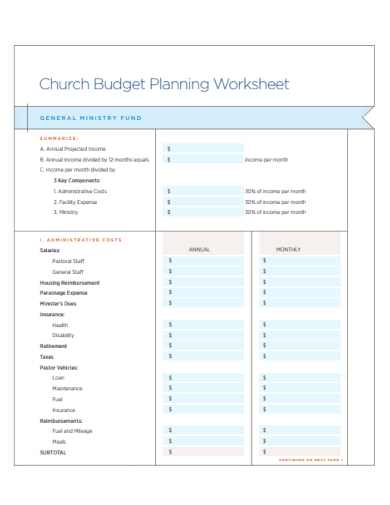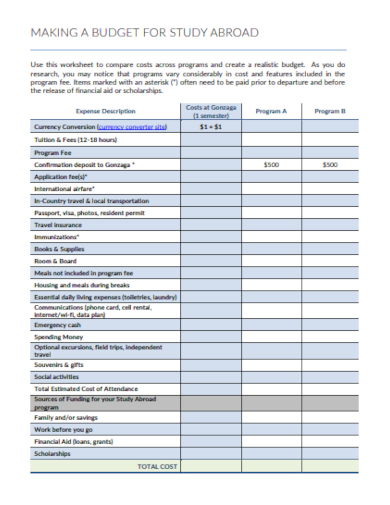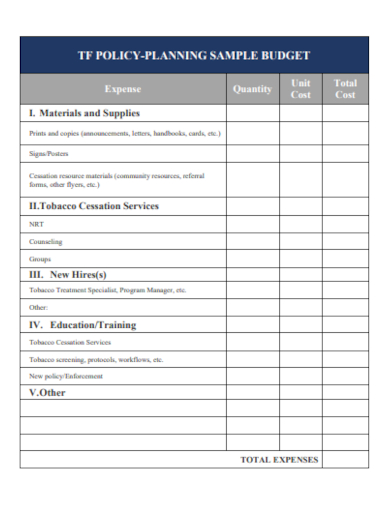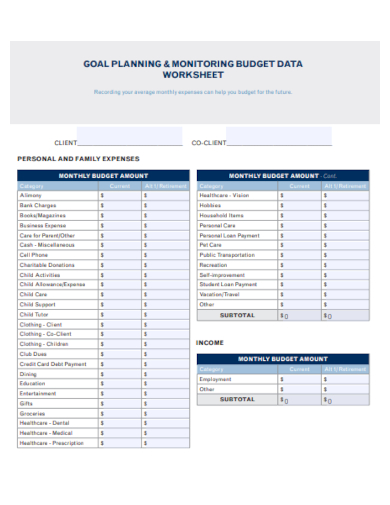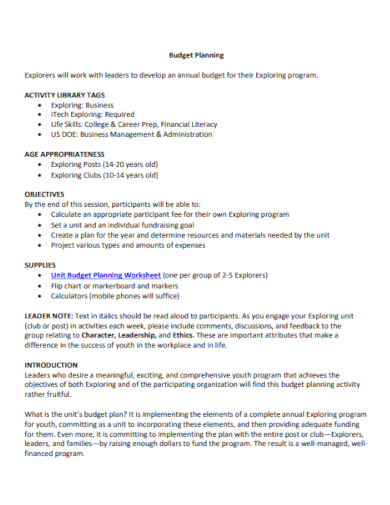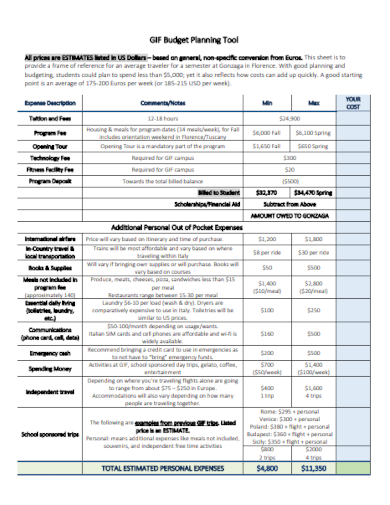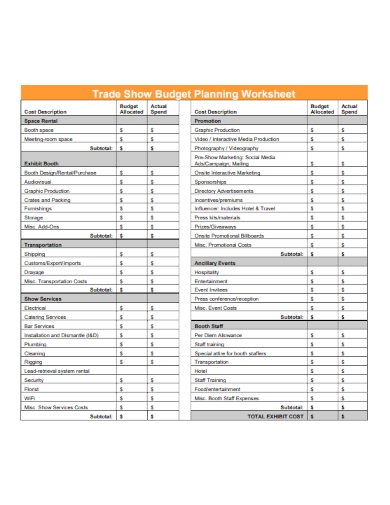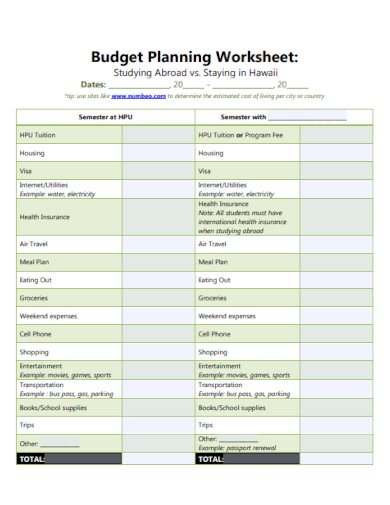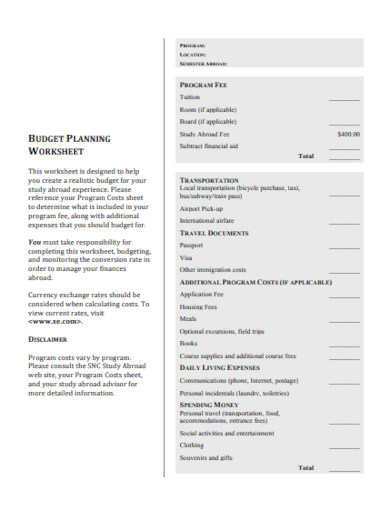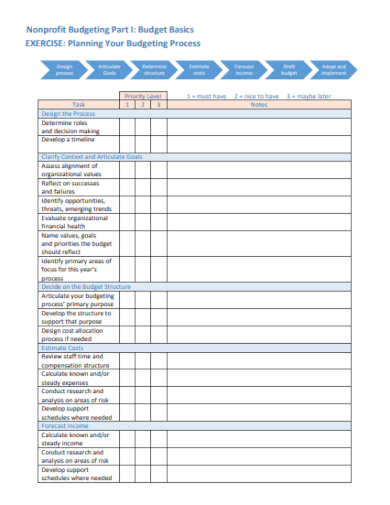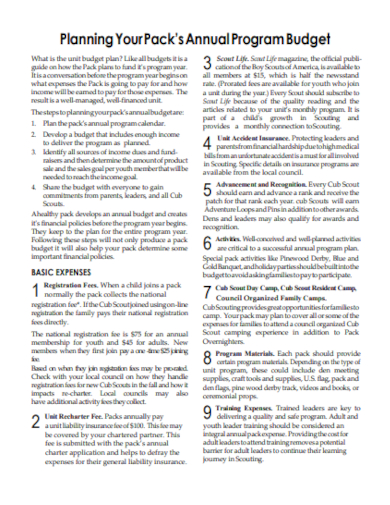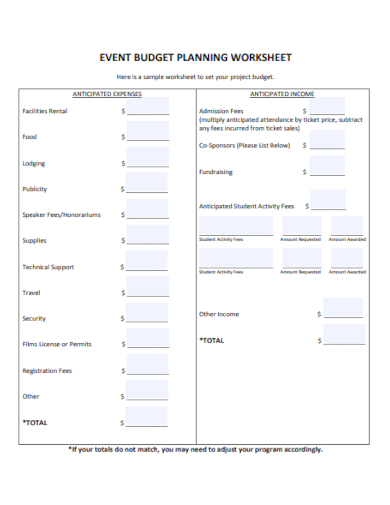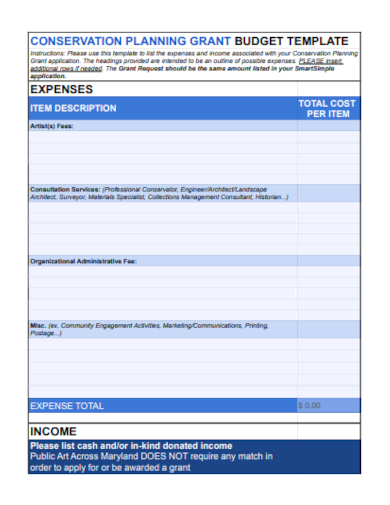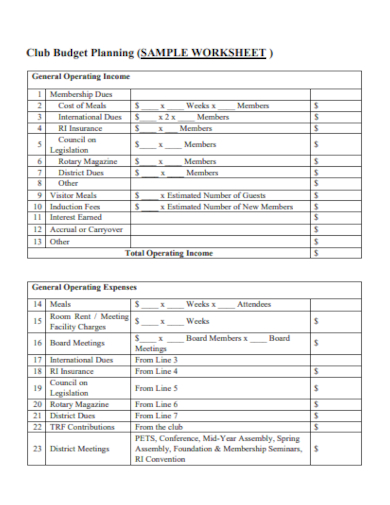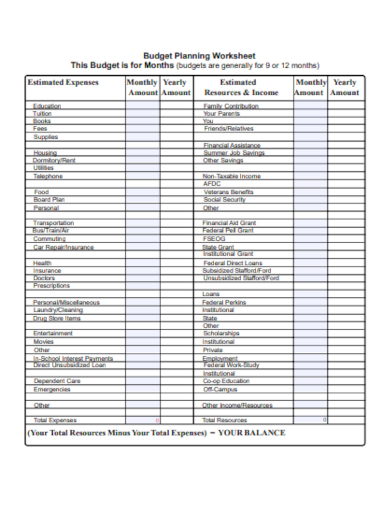Budget planning plays a crucial role in personal and professional financial risk management plan. It involves the process of creating a comprehensive plan that outlines income report, prepaid expenses, and savings tracker, enabling individuals and organizations to make informed financial decisions. Whether you are an individual striving to achieve your financial goals or a business aiming for sustainable growth, effective budget planning is essential. Budgets provide a framework for prioritizing investments samples and capital expenditure budget. By assessing the financial impact and anticipated returns, businesses can allocate funds to project sample that contribute most effectively to growth and profitability.
20+ Budget Planning Samples
1. University Budget Planning Template
2. Budget Planning Checklist
3. Business Budget Planning
4. Printable Budget Planning
5. Program Budget Planning
6. Budget Planning Worksheet
7. Blank Budget Planning
8. Student Budget Planning
9. Simple Budget Planning
10. Editable Budget Planning Worksheet
11. Professional Budget Planning
12. Budget Expense Planning
13. Basic Budget Planning
14. Personal Budget Planning
15. Startup Budget Planning Worksheet
16. Nonprofit Budget Planning
17. Annual Program Budget Planning
18. Event Budget Planning
19. Expense Grant Budget Planning
20. Payroll Budget Planning
21. Monthly Budget Planning
What is Budget Planning?
Budget planning refers to the process of creating a comprehensive financial plan that outlines the anticipated income, projected expenses, and proposed investments over a specific period. It involves assessing available resources, setting financial goals, and allocating funds to various categories or activities based on priorities and objectives.
How To Make Budget Planning?
Budget planning enables individuals, organizations, or businesses to effectively manage their finances, make informed decisions, and track their financial performance. Creating a budget plan involves several key steps. Here is a general outline of how to make a budget plan:
Step 1- Assess Your Income
Identify all sources of income, including salaries, wages, freelance work, investments, or any other regular income streams. Determine the total amount of income you can expect to receive during the budgeting period.
Step 2- Track Your Expenses
Gather and review your financial records, including bank statements, receipts, and bills. Categorize your expenses, such as housing, transportation, groceries, utilities, entertainment, debt payments, and savings. Calculate the average monthly expenses for each category.
Step 3- Set Financial Goals
Identify your short-term and long-term financial goals, such as saving for a down payment on a house, paying off debt, or building an emergency fund. Determine the timeframe and monetary target for each goal.
Step 4- Allocate Funds
Start with essential expenses like housing, utilities, transportation, and debt payments. Allocate a portion of your income to cover these fixed expenses. Prioritize savings by setting aside a portion of your income towards your financial goals. Allocate funds for variable expenses like groceries, entertainment, and discretionary spending, ensuring they fit within your budget.
How far in advance should I create a budget plan?
It is recommended to create a budget plan for a specific period, such as monthly, quarterly, or annually. The timeframe depends on your financial goals and the level of detail you require.
How do I prioritize expenses in my budget plan?
Prioritizing expenses depends on your financial goals and needs. Start by covering essential expenses such as housing, utilities, transportation, and debt payments. Then allocate funds towards savings and financial goals.
How often should I review and adjust my budget plan?
It is advisable to review your budget plan regularly, such as monthly or quarterly, to ensure it remains aligned with your financial circumstances and goals.
Budget planning is an indispensable tool for achieving financial stability and success, both at the individual and organizational levels. By creating a realistic budget and adhering to it, individuals can take control of their finances, effectively manage expenses, and work towards their financial goals. Similarly, businesses can optimize resource allocation, minimize wasteful spending, and plan for sustainable growth.
Related Posts
FREE 9+ 30-Day Marketing Plan Samples in PDF | MS Word | Apple Pages | Google Docs
FREE 3+ Sales Team Action Plan Samples in PDF | MS Word | Apple Pages | Google Docs
Marketing Plan For Small Business Samples
FREE 7+ Fashion Business Plan Samples in PDF
FREE 10+ Sprint Planning Samples In MS Word | Google Docs | PDF
FREE 10+ Wedding Planning Samples in MS Word | Apple Pages | Powerpoint | PDF
FREE 9+ Monthly Study Planner Samples in PSD | Illustrator | InDesign | PDF
FREE 9+ Sample Curriculum Planning Templates in PDF | MS Word
FREE 10+ Teacher Development Plan Samples in MS Word | Google Docs | Apple Pages | PDF
FREE 10+ Basketball Practice Plan Samples in PDF
FREE 12+ School Business Plan Samples in PDF | MS Word | Apple Pages | Google Docs
FREE 7+ Client Strategic Plan Samples in PDF | MS Word
FREE 11+ Trucking Business Plan Templates in PDF | MS Word | Google Docs | Pages
FREE 7+ Small Hotel Business Plan Samples PDF | MS Word | Apple Pages | Google Docs
FREE 14+ Bakery Business Plans in MS Word | PDF | Google Docs | Pages

